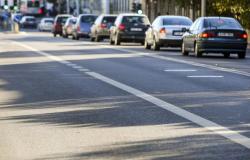It is not worth grumbling about the exceeded calorie norm
First of all, dietitian Dr. Edita Gavelienė points out that food is not only a certain substance, so we should not forget that it brings pleasure and not grudge if we sometimes eat a little more.
“When we make a meal plan for a person, which stipulates that he should get 1,500 calories with food per day, this does not mean that he should necessarily get only that much every day. One day those calories can be 1600, the next – 1300. It is important that the recommended calorie rate, counting all days of the week, should be 1500 per day on average. After all, food is diverse, its calorie content is different, and we want to feel the pleasure of flavors and textures”, Rimi” says Dr. E. Gavelienė.
She notes that if we eat more on weekends or on special occasions, it is useful to plan a day of unloading once a week: “One thing should be remembered: if we eat a variety of food, it takes 1-2 days to digest. So, if we ate more on Sunday, the most useful day for unloading would be Wednesday, although people usually restrict food already the day after a larger meal. Just then the discharge day will not be so effective. It would be most beneficial to eat normally for one or two days after the feast, and only then limit food. During such an unloading day, it is recommended to consume 500-600 calories.”
What food to choose for discharge day
The nutritionist says that it is preferable, although not necessary, to choose one type of food. “It can be kefir or other sour milk products, buckwheat or other whole grains, vegetables or fruits. Although there is not much food on that day, it is necessary to follow the usual eating regime: divide its amount between breakfast, lunch and dinner or one more snack. In addition, you need to drink enough water. You can even plan two consecutive discharge days, and you can also remember the now fashionable, but quite effective, intermittent fasting. There are nutritional systems where you eat normally for 5 days and eat half the normal amount of food for the next 2 days. It is only important that after discharge, the next day, in order to “make up”, we do not eat twice as much as usual”, warns the doctor.

According to dr. Editas Gavelienė, it is not worth restricting food before expected feasts – it is better to eat normally. “If you feel hungry before the holiday, you will definitely eat more. During any feast, I would suggest choosing the food and not putting everyday products on your plates: after all, if we taste unusual, more sophisticated, interesting dishes (in moderation), instead of bread, potatoes or other ordinary food, we will not overeat. Sometimes after a big feast, people rush to exercise – if sport is part of the lifestyle, if you pay attention to it, it’s great and welcome. However, for a sedentary person, a few squats will probably help a lot, it is better to choose a long walk. In Lithuania, it is traditionally customary to sit at the table for quite a long time during the holidays, but if in southern Europe people socialize a lot, Lithuanians eat more than they talk, so the accents are different,” observes Dr. E. Gavelienė.
Tags: dietician advised plan discharge day heavy meals eat effective








